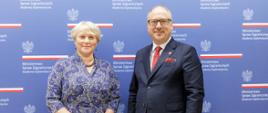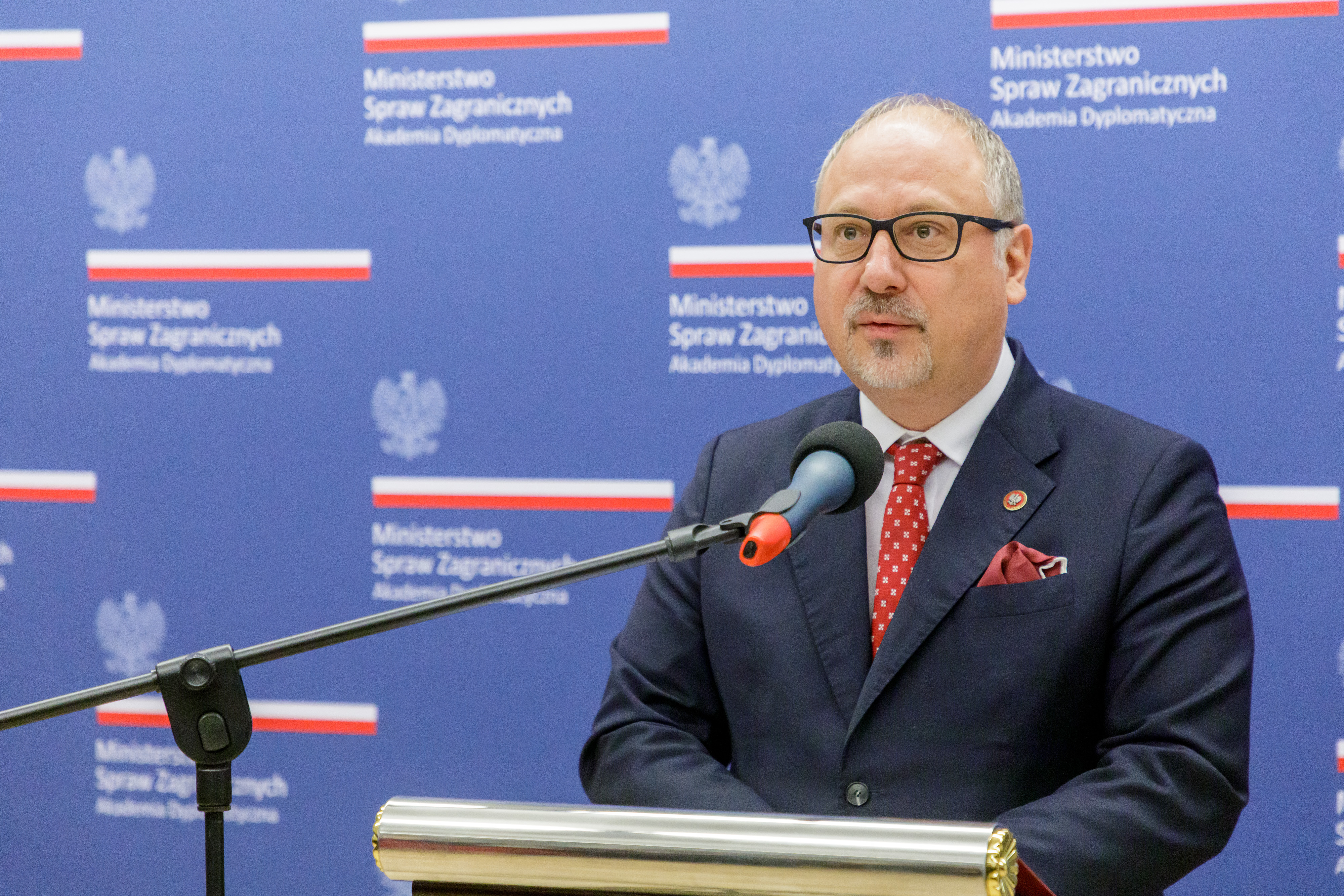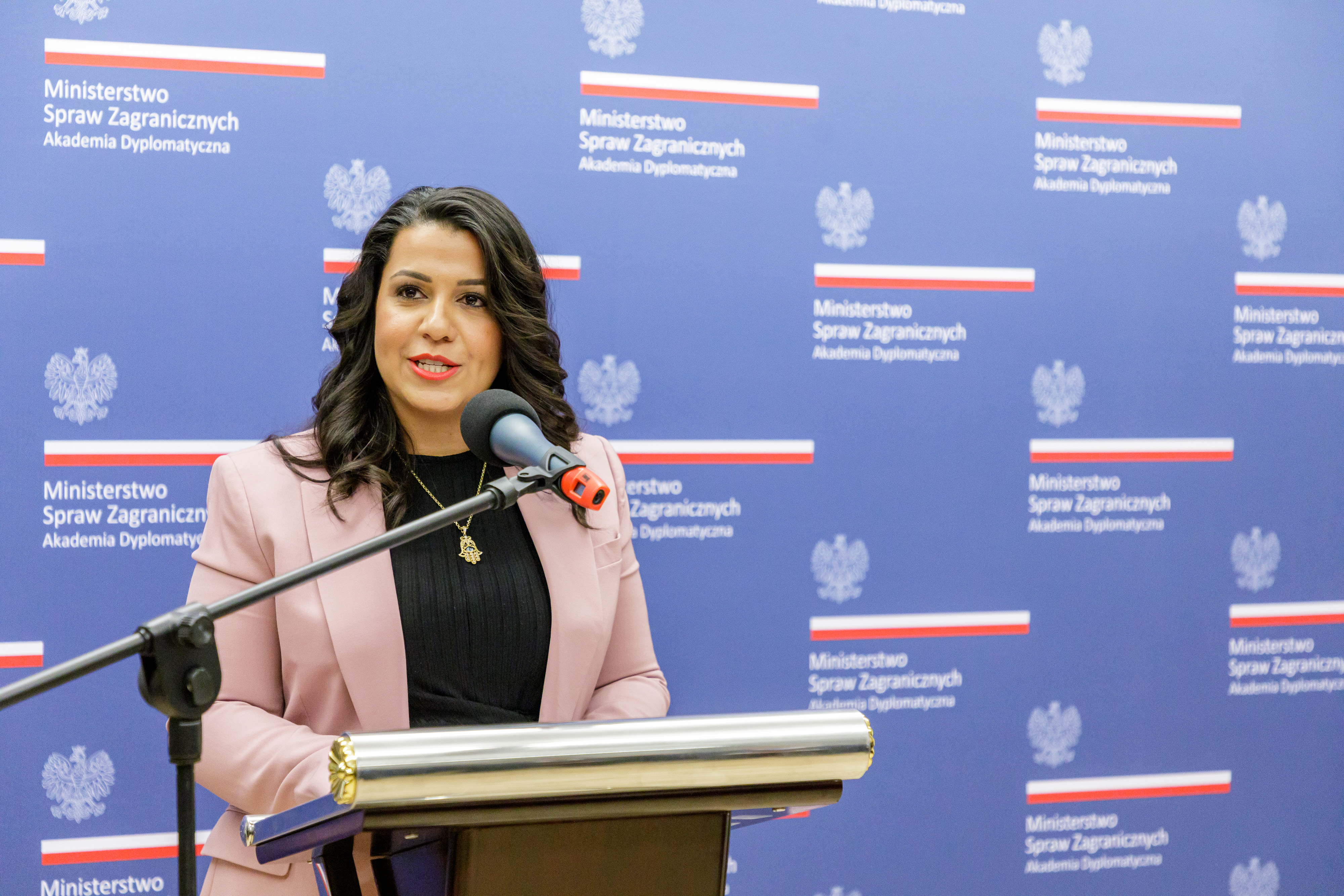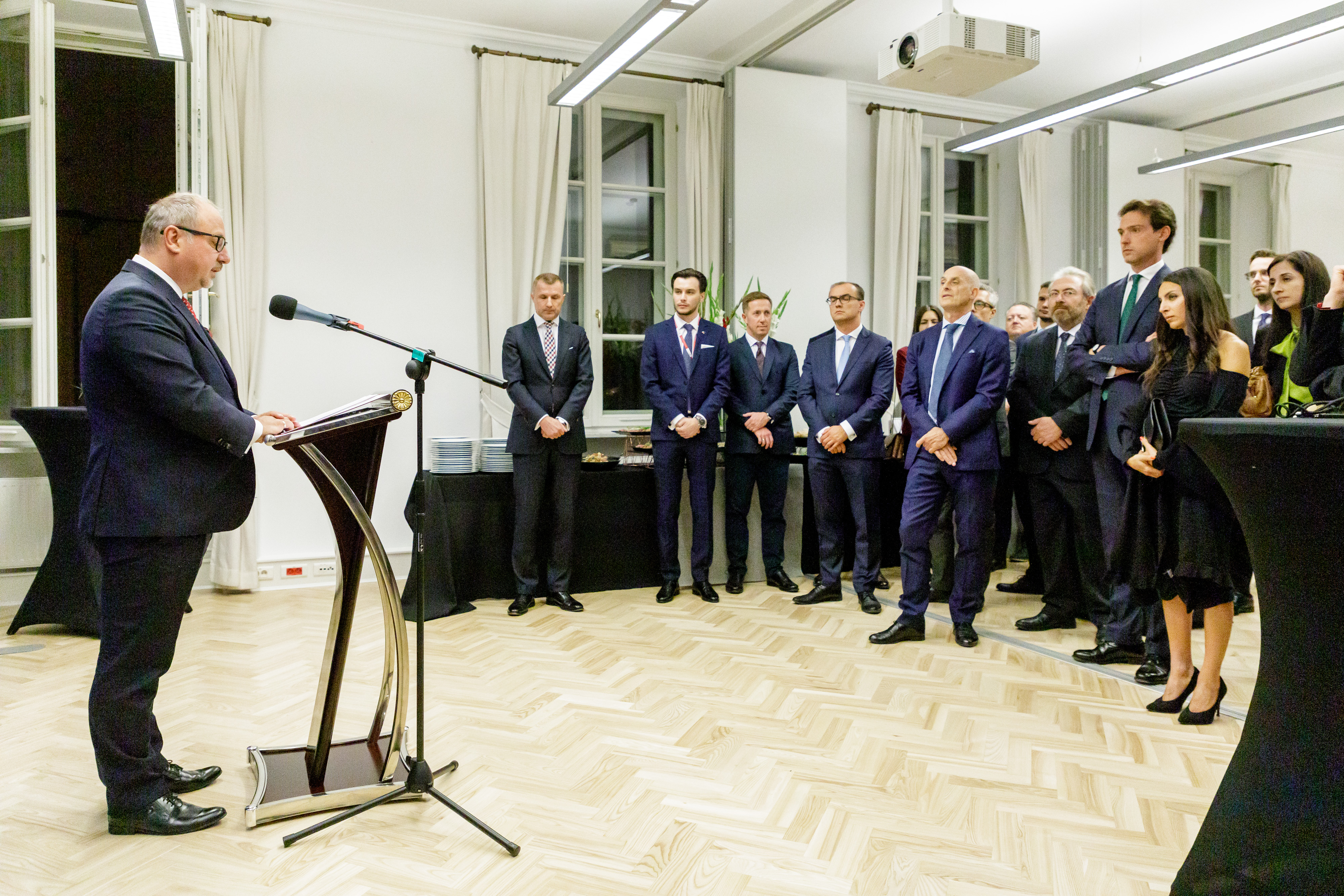Head of the Foreign Service meets participants of the European Diplomatic Academy
02.09.2022
Head of the Foreign Service Arkady Rzegocki met with participants of the first pilot edition of the European Diplomatic Academy. The meeting was attended by the Rector of the College of Europe in Natolin, Ewa Ośniecka-Tamecka, as well as representatives of the embassies of the participating countries.

The European Diplomatic Academy is an initiative of the European External Action Service (EEAS) for young diplomats from the 27 EU Member States, which aims to strengthen the competences of national diplomatic services in EU diplomacy and EU activity in international forums. To carry out the first pilot edition of the programme, the EEAS identified the College of Europe, based in Bruges (Belgium) and Natolin (Poland), which “thanks to its 'one university, two campuses' structure, is a perfect exemplification of the idea of European unity and cooperation” - as Head of Foreign Service Arkady Rzegocki notes. “While College of Europe’s campus in Bruges is located in the centre of Western Europe, close to the most important European institutions, giving its students the opportunity to see how they function in practice, the College of Europe's Natolin campus is located in the heart of Central and Eastern Europe, where European parliamentarism was born and where the traditions of freedom and citizenship on which the European Union is built originate. With this in mind, we must always remember that Europe is only most effective if it draws on the achievements of both Western and Eastern European countries”.
During the meeting, which took place at the Diplomatic Academy of the Ministry of Foreign Affairs, Minister Arkady Rzegocki stressed that “Poland has from the beginning supported the efforts of the EEAS to strengthen the European component in the training processes of the national diplomatic services of EU member states”. According to the Head of the Foreign Service, it is important for diplomats from EU Member and Candidate States to have an in-depth knowledge of the mechanisms of the EU diplomatic apparatus and to act both in the national interest of their country and the EU as a whole. – “It is important that the European Diplomatic Academy should also be an opportunity for young diplomats and officials from European institutions to familiarise themselves with the different perspectives and positions presented by all EU countries in relation to the challenges that the EU is currently facing in the regional and global arena”, Minister Rzegocki stressed.
Thanks to the involvement of the Polish Ministry of Foreign Affairs, representatives of third countries with the status of an EU candidate or a country with membership prospects, including Albania, Montenegro, Georgia, Ukraine, North Macedonia, Moldova, Turkey, were also invited to participate in the pilot programme. The decision to open the European Diplomatic Academy to participants from EU candidate countries and countries with membership prospects sends an important signal to our partners that European diplomacy wants to strengthen their administrations in a practical way and thus support their efforts to further rapprochement with the EU.



